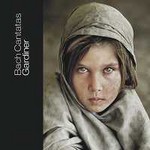
Bach: Cantatas Vol 27: Whit Tuesday BWV184 & 175 / Trinity Sunday BWV194, 176, 165 & 129
 $40.00
Out of Stock
$40.00
Out of Stock6+ weeks add to cart
J. S. BACH
Bach: Cantatas Vol 27: Whit Tuesday BWV184 & 175 / Trinity Sunday BWV194, 176, 165 & 129
Lisa Larsson, Nathalie Stutzmann, Christoph Genz, Paul Agnew / Monteverdi Choir / English Baroque Soloists / John Eliot Gardiner
[ Soli Deo Gloria / 2 CD ]
Release Date: Saturday 22 March 2008
This item is currently out of stock. It may take 6 or more weeks to obtain from when you place your order as this is a specialist product.
'What this survey reveals is a deep personal affection for the repertoire and a refreshing, expressive spontaneity often missing from studio recordings but which here captures the moment of live performance.' BBC Music Magazine Awards 2009: Choral Award Winner
"Yet again there's some incomparable music on both these discs and the standard of performance is uniformly high. Wherever they went on their pilgrimage Sir John and his team dispensed enlightenment and musical experiences that were as enriching as they were enjoyable. Collectors of this ever-impressive series should not hesitate to add this latest volume to their collection."
(MusicWeb March 2008)
'Sir John Eliot Gardiner's Bach Pilgrimage has resulted in a rewarding series of the composer's sacred cantatas. What this survey reveals is a deep personal affection for the repertoire and a refreshing, expressive spontaneity often missing from studio recordings but which here captures the moment of live performance.'
BBC Music Magazine Awards 2009: Choral Award Winner
The first of SDG's 2008 releases combines cantatas for Whit Tuesday and Trinity Sunday. Brandenburg Concerto No.3 precedes the two surviving Cantatas for Whit Tuesday. Pressed for time at the end of a busy Whit weekend during his first year in Leipzig, Bach based BWV 184 Erwünschtes Freudenlicht (1724) on a hasty revision of a lost Cöthen secular cantata. One might momentarily mistake the second movement of this cantata as the origin of the celebrated duet from Lakmé, before considering the long odds of Delibes ever having clapped eyes on this obscure piece. The pastoral mood continues a year later in BWV 175 Er rufet seinen Schafen mit Namen (1725). This is a more elaborate work, the eighth of the nine consecutive texts Bach set by Christiane Mariane von Ziegler.
Recorded in St Magnus Cathedral, Kirkwall after one of the more dramatic journeys on the Bach Cantata Pilgrimage, the first cantata for Trinity Sunday, BWV 165 O heil'ges Geist- und Wasserbad, was composed in 1715 in Weimar. It is a true sermon-in-music, based on the Gospel account of Jesus' night-time conversation with Nicodemus on the subject of 'new life'. A grand French-style overture heralds the start of BWV 194 Höchsterwünschtes Freudenfest. The cantata seems to have begun life as a secular Cöthen piece some time between 1717 and 1723, and was then adapted for the dedication of the new organ at Störmthal (2 November 1723). The programme ends with the genial and uplifting work, BWV 129 Gelobet sei der Herr, mein Gott.
Tracks:
Brandenburg Concerto No. 3 in G Major, BWV1048
Cantata BWV184 'Erwünschtes Freudenlicht
Cantata BWV175 'Er rufet seinen Schafen mit Namen'
Cantata BWV194 'Höchsterwünschtes Freudenfest'
Cantata BWV176 'Es ist ein trotzig und verzagt Ding'
Cantata BWV165 'O heiliges Geist- und Wasserbad'
Cantata BWV129 'Gelobet sei der Herr, mein Gott'


